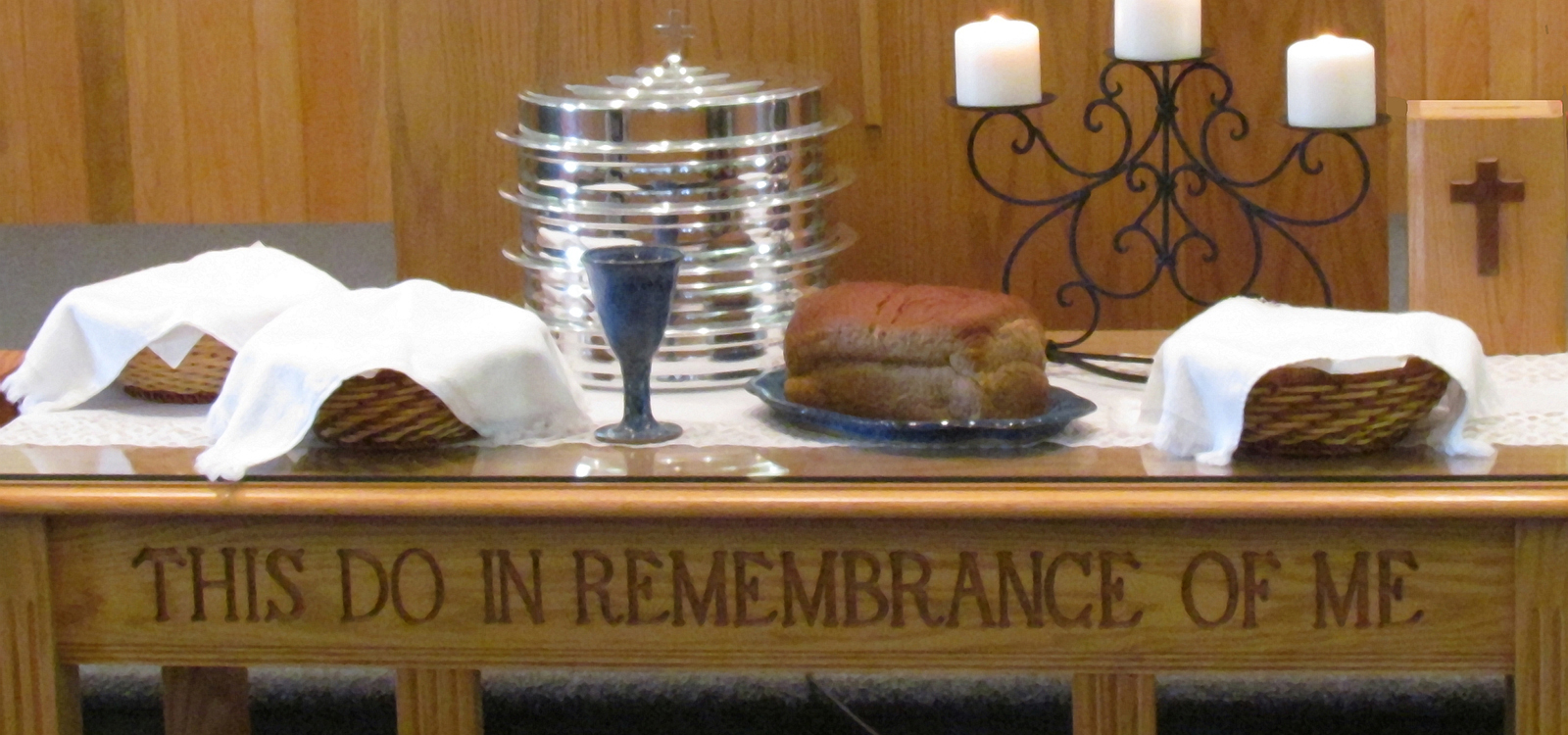This is the third of a five-part fictional story set in the early 1990s about Paul Graham and his congregation, Grace United Church of Christ. Previously, Paul made the difficult but necessary decision to leave the Southern Baptist Convention and became pastor of Grace United Church of Christ, where he encouraged his congregation to fully embrace their identity as an open-minded, grace-filled community of faith.
After their daughters went to bed, Paul told Sarah, “That Tommy Branson is gay is the worst-kept secret at Grace Church.”
Tommy, grown son of Ted and Eva Branson, had been a member at Grace UCC his entire life. Although Ted, Eva and Tommy never spoke about Tommy’s sexual orientation, everybody in the congregation knew Tommy was gay.
Over the past year, Paul had talked with many of his members about the growing controversy of homosexuality in the American church. He summarized his findings to Sarah.
“Like many mainline churches, Grace is not of one mind on the issue of homosexuality. Some members feel that gay relationships are perfectly fine. Others do not approve, although they mostly keep their opinion to themselves. The best I can tell, the majority of the congregation feels ambivalence on the matter.”
“However,” Paul continued, “When it comes to Tommy, there is no ambiguity. Numerous members have said to me, ‘Tommy is part of our church family and welcome in our faith community.’ Church Council chair Glen Hightower tells me that given Tommy’s long-term presence in the congregation, yet his reticence to talk about his sexual preference, Grace eventually developed an informal ‘don’t ask, don’t tell’ position on the matter. Over time, says Glen, an unspoken agreement has slowly gained traction among the congregation that all people, including gay people, are welcome at Grace, especially Tommy and his male friend Anthony Taylor.”
Sarah, thinking about the Southern Baptist Convention’s brutal condemnation of gays said, “What a nice change of pace.”
At first, when Tommy got sick, nobody thought much about it. Figuring he had a temporary illness, they expressed concern, sent cards and kept him in their prayers. However, after repeated illnesses and extended stints in the hospital, people began to have suspicions. In the end it proved impossible to keep Tommy’s diagnosis a secret. A member of Grace Church had HIV/AIDS.
In the end it proved impossible to keep Tommy’s diagnosis a secret.
Paul’s honeymoon was officially over.
For months, Paul journeyed with Tommy and his parents, Ted and Eva, through their awful ordeal. He spent long hours sitting in hospital rooms and then at an AIDS clinic with Tommy and his family. At first Paul felt afraid to touch Tommy. He wondered, Can I catch his disease from a handshake or a hug? Am I putting my family at risk? Like many others Paul was ignorant about the transmission of HIV. Sarah, a Ph.D. chemistry professor, did extensive research on the subject and put her husband’s fears to rest. Sarah informed Paul, “You cannot catch AIDS from casual human contact. The only way to acquire AIDS is to share bodily fluids with an affected person through sexual contact or shared needles.”
During Tommy’s stay in the AIDS clinic, Paul visited him every week. This week Paul went on a Tuesday afternoon. He found Tommy reading in his bed.
“Good to see you, Pastor Paul,” Tommy said with a smile.
“Good to see you,” replied Paul. “The members at Grace send their love and prayers your way.”
“I appreciate that,” replied Tommy. “I miss being there.”
“We miss having you there. So, how are you feeling these days?”
“The past few weeks have been tough. But I’ve made progress in recent days. My lungs are clearing up. The doctors say I should be able to go to my parent’s home in a week or two.”
“I know Ted and Eva will love having you back home.”
“They’ve been incredibly supportive throughout this entire ordeal. I hope they know how much I appreciate them.”
“I’m sure they do,” Paul said.
“Would it be possible for you to bring me Communion? It’s always been special to me, and I haven’t had it in months.”
After talking several more minutes, Paul asked, “Is there anything I can do for you?”
Tommy thought for a moment. “Actually, there is. Would it be possible for you to bring me Communion? It’s always been special to me, and I haven’t had it in months.”
“I’d be more than happy to do that,” Paul replied. “I’m tied up tomorrow, but I can drop by on Thursday, and we can take Communion together. I look forward to it.”
Before Paul departed, Tommy said, “Pastor Paul, I’d like you to meet my roommate. This is Jason Harding.”
Paul turned his attention to Jason, lying in the other bed in the room. He shook his hand and said, “Nice to meet you, Jason.”
“Nice to meet you, sir,” Jason replied. “Reverend,” Jason added, “I couldn’t help but hear you talking about Communion. Would you be willing to include me on Thursday? I’d love to take Communion again. It’s been a long time.”
“I’d be happy to,” Paul said.
Jason explained his situation. “I went to church my whole life. But my home church is extremely conservative, so I never told my parents or my congregation I was gay. When I got AIDS, my parents told me, ‘We no longer have a son.’ I haven’t seen them since. A few weeks later my pastor wrote me a letter saying I had been removed from the membership. He told me not to return. That was about a year ago.” Paul could see tears forming in Jason’s eyes.
“I’m deeply sorry to hear that, Jason. I hope you know God hasn’t rejected you. God still loves you and claims you as his beloved child, regardless of what your parents and church might think.”
“I hope you know God hasn’t rejected you.”
“I hope that’s true,” Jason said.
“I know it’s true,” replied Paul. He paused a moment and said, “I look forward to seeing both of you on Thursday and celebrating the sacrament of Holy Communion together, just like we do at church.” Paul offered a prayer for Tommy and Jason and then left.
Late Wednesday afternoon, Paul received a phone call at the office. “Reverend Graham, this is Lisa Woodford. I’m the social worker at the AIDS clinic where Tommy Branson is a patient. I have an unusual request.”
“What can I do for you, Lisa?” asked Paul.
“Tommy and Jason told some of the other patients you were coming tomorrow to serve them Communion. Several of the men asked if they could be a part of that. Pretty soon, the whole ward was talking about it. They asked me to call you. They want to know if you would be willing to do a service for all of them. If so, they plan to invite everyone on the ward. We have a room right off the lobby you could use. It’s not large, but our ward only has 20 patients, and they won’t all come, so the space would work fine. Is this something you would be willing to do? It would mean a lot to the men. Many of them grew up in church but haven’t been in years.”
Paul didn’t hesitate. “I would love to do so.”

(shutterstock)
The next day, Paul returned to the AIDS clinic and set up for Communion. One by one, young men began to enter the room. Some walked on their own, some used canes or walkers, and two came by wheelchair, rolled into the room by their comrades. Paul greeted each of them individually as they came in, shook hands with them, and asked them their names. In all, 17 of the 20 patients came to the ad hoc chapel service.
After a few opening comments, Paul said, “I’m not much of a singer, and we don’t have a pianist, but I thought we might start with a song. Are there any requests?”
Before anyone responded, Jason said, “Billy plays a mean harmonica. He could play a hymn for us to sing.”
Billy grinned, took his harmonica out of his pocket and said, “How about ‘Amazing Grace’?”
“That would be perfect,” replied Paul.
“Before we take Communion, I’d like to tell you a true story.”
After they sang, Paul said, “Before we take Communion, I’d like to tell you a true story. Years ago, on a trip through Tennessee, Fred Craddock, a minister and seminary professor, stopped at a restaurant where he met an old man, long retired. When the elderly gentlemen found out Craddock was a preacher, he told him the following story from his childhood.
“The old man told Craddock he had been born and raised in a little village near that restaurant. He had a single mother, and they were very poor. He was what they called back then an ‘illegitimate child,’ a child born out of wedlock. When his mother and he came into town on Saturday, they were shunned by all the good people. They wouldn’t let their kids play with him, and some of them walked to the other side of the street when they saw his mother and him coming. He had many fights with boys at school over the names they called him and the bad things they said about his mother.
“They had a little church in that village. The boy went to it sometimes. He would sneak in after the service started and slip out before the benediction so he would not have to face the church people and feel their disapproval. One day a new pastor came to the church. To check him out, the boy slipped into the back seat halfway through the service. And he liked his sermon. The pastor was young and talked so the boy could understand him.
“But then the new preacher pulled a fast one on the boy. After the sermon he walked to the back of the church, announced that he wanted to meet everyone present, and then pronounced the benediction. The boy was trapped. He waited until the church was empty, hunkered down in the corner, hoping the pastor would not notice him. But he did. The new preacher walked over to him, thrust out his hand, and said, ‘Glad to see you, boy. And tell me, who is your daddy?’
“The boy turned red and dropped his head. The preacher didn’t know the details, but he knew he had asked the wrong question. The pastor took the boy by the chin, pulled his face up to look him straight in the eye, and said, ‘Oh, you don’t need to tell me. I already know. I see the family resemblance. I see it in your face. You are a child of God.’ The boy’s name was Ben Hooper. He went on to become the governor of the state of Tennessee.”
Paul planned on beginning the service of Communion right after the story. However, as he looked at these young men, many of whom had been rejected by their family and church, he spontaneously began to sing, “Jesus loves me! This I know …” As he did, the men joined him, “For the Bible tells me so; little ones to him belong; They are weak, but he is strong. Yes, Jesus loves me! Yes, Jesus loves me! Yes, Jesus loves me! The Bible tells me so.”
At the conclusion of the song, there wasn’t a dry eye in the room, including Paul’s. He then said, “As we come to the table of Holy Communion, let us remember — this is the table of Jesus. These elements remind us we are beloved children of God, and all of us are welcome.”
Whether Tommy, as an active AIDS patient, would be fully welcomed back at Grace UCC remained to be seen.
Martin Thielen, retired United Methodist minister and writer, is the creator and author of www.DoubtersParish.com. The stories in this series come from his novel An Inconvenient Loss of Faith available for free download.
Previously in this series:
Searching for Grace: A necessary ending
Searching for Grace: First Sunday


